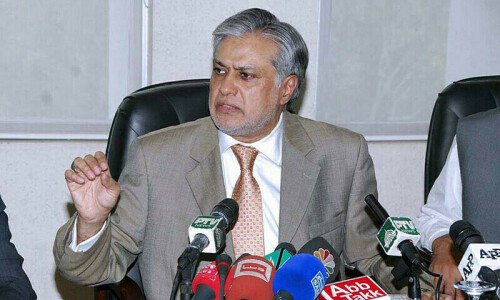In its meeting held on 6th June 2023, the National Economic Council (NEC)approved the national development outlay for 2023-24 at Rs2.71 trillion, including the federal Public Sector Development Programme at Rs1.15tr and provincial Annual Development Programme at Rs1.56tr.
In 2022-23, the NEC approved a national development outlay of Rs2.26tr, including provincial ADPs of Rs1.46tr and federal PSDP of Rs800 billion.
While Pakistan has a relatively large public spending programme and, as economists suggest, there is a multiplier effect of government spending on the GDP, government spending hasn’t been able to compensate for the lack in other areas of the economy, for instance, Pakistan is trapped in the low private investment-to-GDP bracket.
While government spending cannot entirely replace the usefulness of private investment, there are several cracks in the public financial management and accounting system which prevent government spending from translating into better economic and development outcomes.
The procedural delays and involvement of too many entities is one of the primary reasons why projects cannot make timely expenditures and money remains unspent
Let us see how the development financing and fund flow mechanisms work in Pakistan and identify gaps and challenges in the public financial management and accounting system.
There is an elaborate planning mechanism in place that includes approval of development schemes and projects by various local, provincial and national forums, including the Provincial Development Working Party, Central Development Working Party, Executive Committee of the National Economic Council, etc.
Schemes regarding provincial line departments and federal ministries/divisions are presented to these forums headed by nominees of provincial planning and development departments and planning commissions in the federal government. Approved schemes and projects are authorised by the Ministry of Planning Development & Special Initiatives, and provincial planning and development departments. These projects and schemes constitute the provincial ADP and federal PSDP. The provincial ADPs and federal PSDP make up the national development outlay of Pakistan.
The budget wing at the finance ministry issues release sanctions for funds against authorised projects of the federal government, while the provincial finance wing at the finance ministry deals with the respective provincial shares of utilisation.
Unexpended funds are parked into the provincial consolidated fund, which seriously limits the already eroded fiscal capacity of the federal government
Releases are made per an approved release policy/strategy and are usually done by each line ministry quarterly. Release requests are made against each project entity by the secretary of the line ministry acting as the principal accounting officer (PAO). The PAOs then make onward transmissions to project entities. Project teams then plan and accordingly execute their expenditures.
What the PAOs release to project entities is a small share of authorisation, and what the projects end up spending in a fiscal year is also a small share of what the PAOs disburse. The funds that remain unspent are usually surrendered to the exchequer.
In 2022-23, out of a total federal PSDP allocation of Rs714bn, projects worth Rs596bn were authorised. Sanctioned releases against this authorisation were around Rs520bn, while the total expenditure stood at around Rs320bn at the end of May. Rupee expenditure was only 49.7 per cent of the total rupee allocation, while it was 56.6pc of the rupee authorisation.
Another unknown about Pakistan’s public financial management system and fund flow mechanism is that funds are routed to projects through the Federal Consolidated Fund (FCF).
This arrangement is specifically peculiar in the case of federal projects being implemented with the buy-in of the provincial government. Surrenders of unspent funds are not made directly back into the FCF and are instead parked into the provincial consolidated fund, thereby seriously limiting the already eroded fiscal capacity of the federal government.
The procedural delays and involvement of too many entities in the fund flow process are primary reasons why projects cannot make timely expenditures and funds remain unspent and at the mercy of a public financial management system from where it will be equally impossible to lay hands on them in the next financial year.
A holistic review of the fund flow mechanism and public financial management system is required. It requires nothing but a conviction to bring together public finance experts who can easily streamline processes.
The writer is an economist based in Islamabad.
Published in Dawn, The Business and Finance Weekly, June 19th, 2023













































